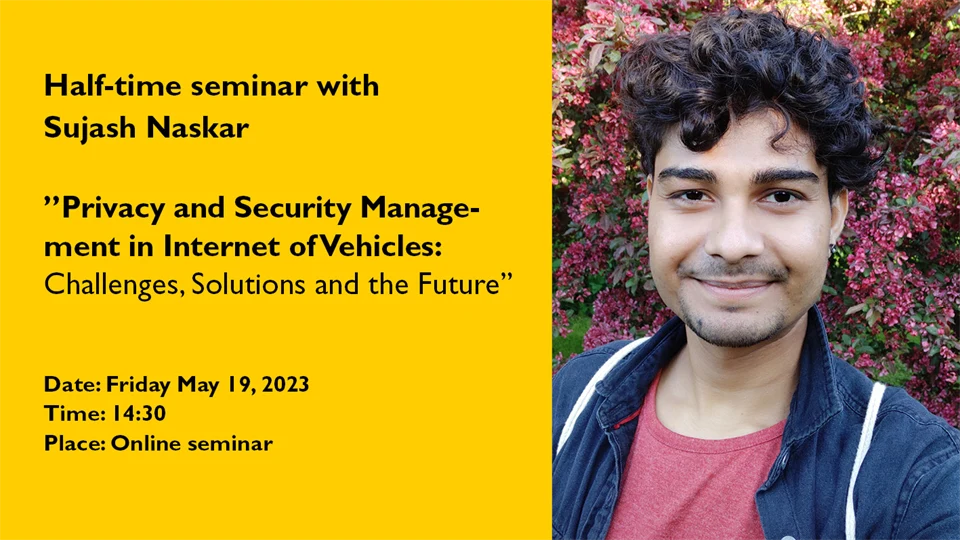Halvtidsseminarium med Sujash Naskar
Välkommen till ett halvtidsseminarium med Sujash Naskar som kommer att presentera sitt arbete med sin doktorsavhandling. Dr. Shahid Reza, chef för cybersäkerhet på RISE och docent vid Uppsala universitet, kommer att granska arbetet. Seminariet ges på engelska.
Datum: Fredag den 19 maj, 2023
Tid: 14:30
Plats: Online seminar and in L408 on campus Sundsvall.
Privacy and Security Management in Internet of Vehicles: Challenges, Solutions and the Future
Abstract
The Internet of Vehicles (IoV) is an advancement of Vehicular Ad-hoc Networks (VANET), specially designed for private, authenticated and secure communication between vehicles and other entities. With the recent developments in 5G and 6G technologies that have opened new attack surfaces in IoV, the potential security vulnerabilities and privacy theft in Vehicle to Entity (V2X) communication have become a serious challenge. Therefore, there is a need for privacy-preserving anonymous authentication and message transfer in real-time communication to be addressed with the most efficient cryptographic primitives and 5G/6G technologies.
In our approach, we design lightweight cryptographic protocols for vehicle authentication by using non-conflicting one-way hash functions, pseudonyms, zero-knowledge proof of knowledge and symmetric encryption decryption techniques. Using these primitives, we aim to keep the total time needed for an authentication and message transfer within 10msec, which is proved to be efficient enough for a vehicle moving 200km/hr to broadcast a precrash warning in real-time considering the network delays. Also, we aim to design a simplified IoV system model by removing third-party involvement in each communication reducing the delays by up to 70 %! So far we have proposed three different solutions for IoV systems, all of which meet strong privacy and security guarantees with high efficiency and scalability.
The results of our research outcome can support vehicles to broadcast warning and traffic messages below 6 msec even while using comparatively fewer hardware resources in the literature. However, for the first time, we have proposed a novel research question with a solution to the privacy-preserving vehicle rental scheme in IoV by introducing a multi-user environment with vehicle-to-vehicle direct verifiability. Our future direction is to introduce an IoV system where no third-party trust is needed and direct conditional revocation is possible to enforce legal rules in traffic management to automated vehicles. Also, during the second half of the PhD studies, we will work on making a standard system architecture for IoV with a globally accepted threat model, which will guide us towards the practical real-life implementation of IoV benefitting society.
